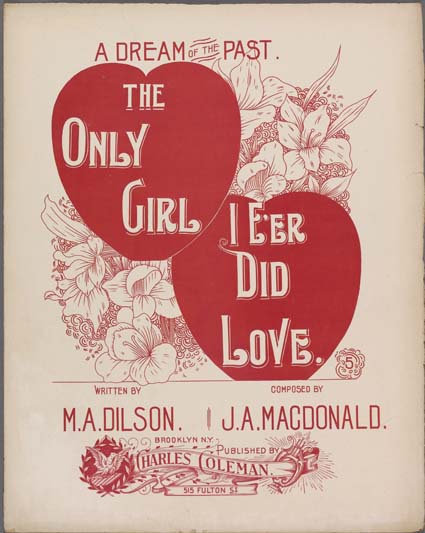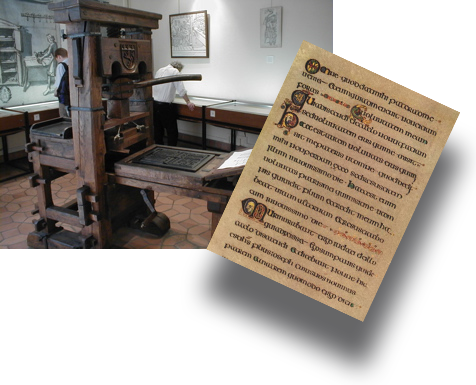Revised as of 14 Feb 2024
Ere long you’ll not be wanting to err . . . e’er . . . in this trio of heterographs. Lord knows, I felt like I needed a cheatsheet throughout this post, trying to keep ’em all straight!
Exploring Later . . .
You may be curious about other posts involving -er which include “Air vs Err vs Heir” and “‘Em, ‘Er, ‘Im . . . “.
Word Confusions . . .
. . . started as my way of dealing with a professional frustration with properly spelled words that were out of context in manuscripts I was editing as well as books I was reviewing. It evolved into a sharing of information with y’all. I’m hoping you’ll share with us words that have been a bête noire for you from either end.
If you found this post on “E’er vs Ere vs Err” interesting, consider subscribing to KD Did It, if you’d like to track this post for future updates.
| E’er | Ere | Err |
|---|---|---|

The Only Girl I E’er Did Love was scanned by NYPL and is in the public domain, via Wikimedia Commons. — Sweet song from 1899 that had an alternate title, My Katie was as true to me as woman e’er could be. |

Gutenberg Press by Ghw at English Wikipedia and Kells Folio 309r are in the public domain, via Wikimedia Commons. — Ere Gutenberg’s press, books were handwritten. |

Sin Thwarting Ascension into Heaven uploaded by Årvasbåo is in the public domain, via Wikimedia Commons. — I don’t think he’ll make it as he errs in poverty, sickness, lust, and death. |
| Part of Grammar: | ||
| Contraction of ever, an Adverb | Conjunction; Preposition | Verb, intransitive
Third person present verb: errs |
| [Literary, poetic, archaic] Ever
[Usually with negative or in questions] At any time
At all times
[With comparative] Increasingly
Used for emphasis in questions and other remarks, expressing astonishment or outrage |
Conjunction and Preposition: [Poetic, literary, archaic] Before (in time) |
[Formal] Be mistaken or incorrect
To stray from the right course or accepted standards
To act with bias, especially favorable bias To go astray in thought, morals, or belief [Archaic] To deviate from the true course, aim, or purpose |
| Examples: | ||
| She had lived alone e’er since her husband died.
I am e’er grateful, my lord. They lived happily e’er after. “And she spoke to him e’er courteously and kindly, even as though he had been a holy man and worthy of all reverence” (Rives). “A taking hand will never want, let the world be e’er sae scant” (Hislop). “And as to learning, I make no query she can talk you over the Latin grammar as fast as e’er a gentleman here” (Burney). |
Conjunction: I was driven for some half mile ere we stopped. “Three times,” he says angrily, “thou shalt betray me ere the cock crows” (Solotaroff). Preposition: “Slope downwards to thy depths, O sea, that ere it be for ever too late, Ahab may slide this last, last time upon his mark!” (Melville). |
The judge had erred in ruling that the evidence was inadmissible.
The erring brother who had wrecked his life was back. I had erred in asking Emma to be my wife. Both 2016 presidential candidates have erred in their moral choices. “To err is human, to forgive divine” (Pope). |
| Derivatives: | ||
| Adverb: erelong, erewhile [both archaic] | Adjective: errable, errant, erring Noun: errability, errancy, errata, erratum, erring, erroneous, error |
|
| History of the Word: | ||
| Old English ǣfre is of unknown origin. | Old English ǣr is of Germanic origin and related to the Dutch eer and German eher. | Middle English in the sense of wander, go astray is from the Old French errer, from the Latin errare meaning to stray. |
C’mon, get it out of your system, bitch, whine, moan . . . which words are your pet peeves? Also, please note that I try to be as accurate as I can, but mistakes happen or I miss something. Email me if you find errors, so I can fix them . . . and we’ll all benefit!
Satisfy your curiosity about other Word Confusions on its homepage or more generally explore the index of self-editing posts. You may also want to explore Book Layout & Formatting Ideas, Formatting Tips, Grammar Explanations, Linguistics, Publishing Tips, the Properly Punctuated, Writing Ideas and Resources, and Working Your Website.
Resources for E’er vs Ere vs Err
Some of these links may be affiliate links, and I will earn a small percentage, if you should buy it. It does not affect the price you pay.
Apple Dictionary.com
Burney, Fanny. Camilla. 2016. <https://amzn.to/3g1XNVK>. Ebook.
Dictionary.com: e’er
Hislop, Alexander. The Proverbs of Scotland. 2012. <https://amzn.to/3GsSwld>. Ebook.
Melville, Herman. Moby Dick. Musaicum Books, 2017. <https://amzn.to/3Xa6Vsr>.
Pope, Alexander. “An Essay on Criticism.” 2012. <https://amzn.to/3OgmhaN>. Ebook.
Rives, Amélie. A Brother to Dragons and Other Old-time Tales. 2011. <https://amzn.to/3AafOIe>. Ebook.
Solotaroff, Ivan. “The Stacks: The Judas Priest Teen Suicide Trial.” The Daily Beast. 28 June 2014. Web. n.d. <https://www.thedailybeast.com/the-stacks-the-judas-priest-teen-suicide-trial>. Article.
Pinterest Photo Credits
Howdy, Howdy from the Brown Twins is Artsuaga’s own work under the CC BY-SA 3.0 license, via Wikimedia Commons.


